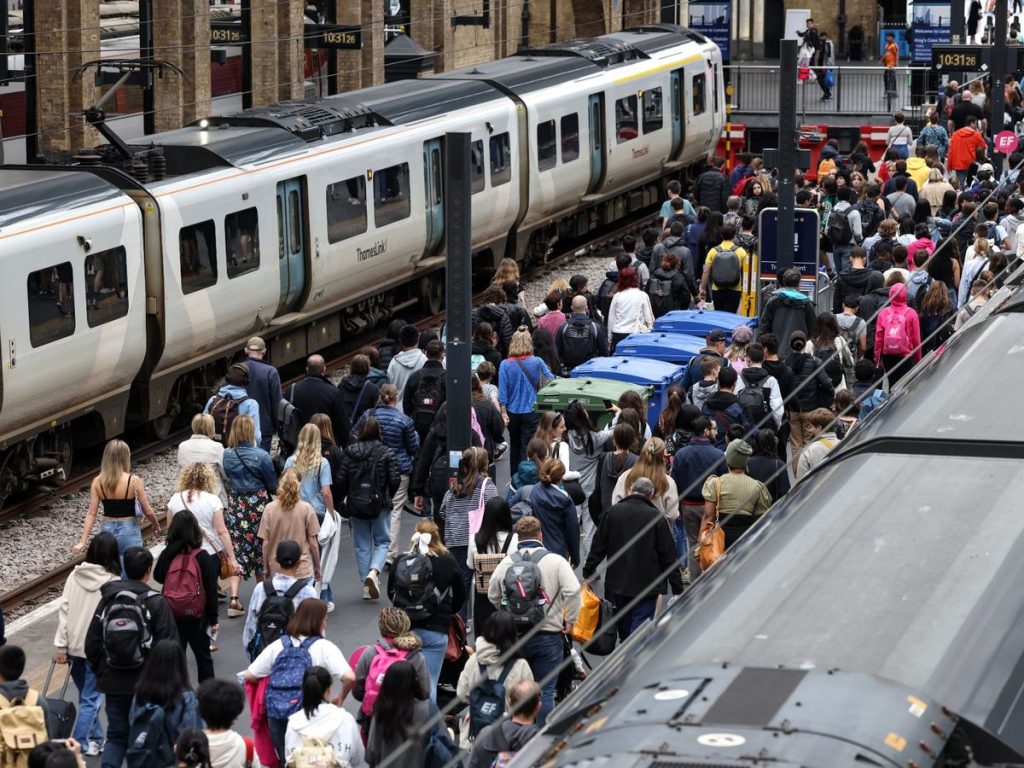A new day of train disruption is expected throughout the UK as thousands of members of the Rail, Maritime, and Transport Union (RMT) go on yet another major strike.
At 9 a.m., the third 24-hour strike by about 20,000 workers at 14 significant train operators that the Department of Transportation has contracted with officially began. m. Saturday to express disapproval of the pay and working conditions.
In light of the widespread changes to rail services brought on by the ongoing strikes on the UK rail network, officials have advised passengers to check train schedules before boarding, with some operators advising people to travel only if absolutely necessary.
read more: UK Passengers face fresh travel disruption amid strike by thousands of rail workers
Cross-border trains serving Wales and Scotland were also delayed by the strikes, even though those trains’ employees weren’t directly involved.
Only about half of the train lines will be operating in some areas, and numerous lines and branch stations will be closed.
The last long-distance trains leave earlier in the afternoon, and the schedule is typically shortened to one hour.
Before leaving, passengers should check to see if trains are running, according to the Rail Delivery Group (RDG), which speaks for train operators. The strike may also cause train delays on Sunday morning.
According to RDG, the strike would have an impact on family vacation plans, put tens of thousands of people under financial strain, and harm businesses.
After the union’s below-inflation offer was rejected, the RMT blamed the government and businesses for failing to engage in negotiations. Unions are also against the proposed closure of ticket offices, which the RMT has called a “fig leaf for layoffs” and is the subject of a broad public consultation at the moment.
Services are coming to a close. Since we haven’t received a pay increase in four years, the remaining employees want to change our employment contracts and reduce our benefits, according to Mick Lynch, general secretary of the union.
There is currently no agreement in sight, but we remain open to talks with the companies and the government. However, it is up to them to extend an invitation for us to return to the negotiating table so that we can come up with solutions to the dispute, he added.
The railway workers’ strike comes after a year of similar protests in Britain, with the National Health Service (NHS) employees being among the main government workers demanding better pay and working conditions.
The most recent strike was one that senior doctors organized on July 20 and 21. Senior physicians will stage a second two-day walkout on August 24 and 25, according to the British Medical Association (BMA), which is expected to put additional strain on the nation’s National Health Service.
The recent senior doctor walkout came after junior doctors went on a five-day strike, making it the longest strike in NHS history.
Back-to-back walkouts have already had an impact on the nation’s healthcare system, raising concerns about patient safety.
Prime Minister Sunak begged public sector workers to end their industrial action and offered a 6% pay increase, saying that was his final concession and that no amount of walking out would change his mind.
The PM emphasized that there would be no more pay talks.

